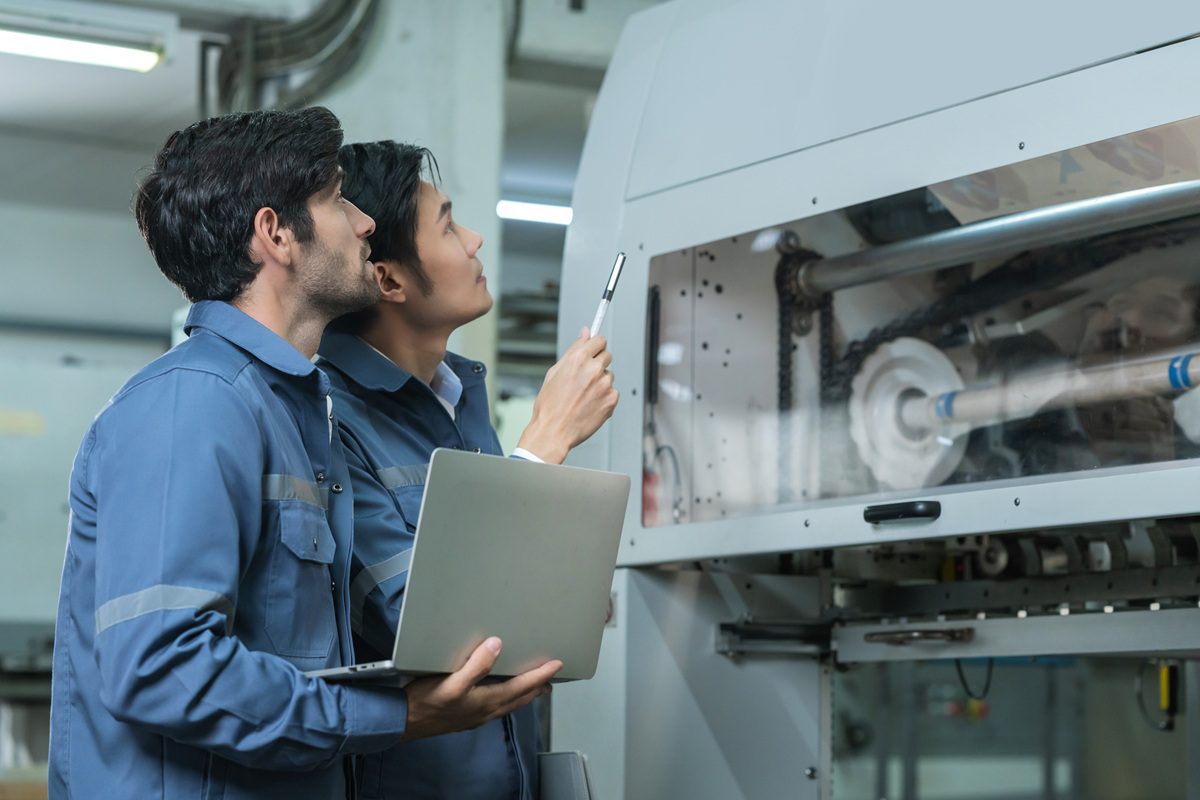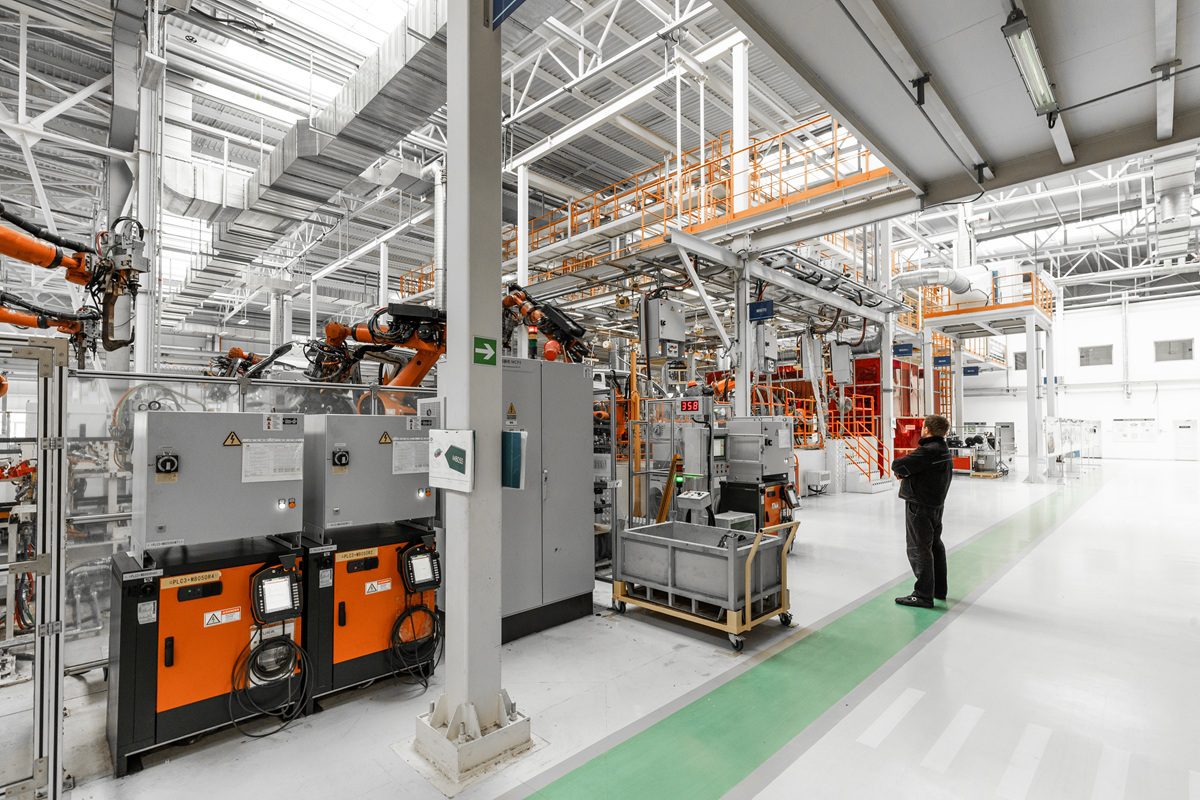In today’s fast-paced manufacturing world, staying competitive means more than just producing at scale. Manufacturers need to be agile, efficient, and data-driven. That’s where MES, or Manufacturing Execution Systems, come into play.
In this article, we’ll explore what MES is, its core features, how it works on the shop floor, how it differs from ERP, the benefits for manufacturers, and practical guidance for implementing MES in Malaysia. By the end, you’ll understand why MES is crucial for modern manufacturing and how it can help your business thrive.
Understanding MES: The Backbone of Modern Manufacturing
An MES is a software solution that manages, monitors, and synchronizes the execution of real-time production processes on the factory floor. It acts as a vital bridge between enterprise-level systems like ERP (Enterprise Resource Planning) and the actual machinery and workforce that execute daily operations.
Think of MES as the digital command center of a manufacturing facility. It collects real-time data from machines, tracks production orders, and provides operators with the tools and information needed to make better decisions. More than just data collection, MES ensures everything from raw material input to finished product output is traceable, streamlined, and optimized for quality.
Core Features of MES
Modern MES solutions offer a range of functionalities that go beyond basic tracking. Key features include:
| Feature | Description | Benefit |
| Real-time Production Monitoring | Tracks machine status, production progress, and operator activity | Quickly identifies bottlenecks and reduces downtime |
| Quality Management | Monitors defects, standardizes procedures, and ensures regulatory compliance | Improves product consistency and reduces recalls |
| Inventory and Material Tracking | Tracks raw materials, work-in-progress, and finished goods | Reduces waste and prevents shortages |
| Work Order Management | Assigns, schedules, and updates work orders automatically | Improves workflow efficiency and resource allocation |
| Data Analytics and Reporting | Provides dashboards, KPI tracking, and performance analysis | Supports better decision-making and predictive maintenance |
| Traceability | Tracks production from raw material to finished product | Essential for industries like pharmaceuticals, food, and automotive |
These features help manufacturers improve efficiency, quality, and responsiveness, making MES an integral part of Industry 4.0 initiatives.
MES Vs. ERP: Understanding the Difference
A common question is whether MES replaces ERP. The answer is no, MES complements ERP. While ERP focuses on high-level planning, finance, and resource allocation, MES manages execution on the production floor.
| Aspect | MES | ERP |
| Primary Focus | Real-time production execution | Enterprise resource planning, finance, and operations |
| Scope | Shop floor operations, quality, and inventory tracking | Enterprise-wide planning and management |
| Users | Production managers, operators, maintenance staff | Finance, procurement, HR, management |
| Data Granularity | Real-time machine and process data | Aggregated operational and financial data |
| Implementation | Often integrated with ERP | Typically broader, spanning multiple departments |
Combining MES and ERP provides end-to-end visibility, ensuring that strategic planning aligns with shop-floor realities.
Why Manufacturers Are Investing in MES
Key Benefits of Using MES:
1. Real-time visibility
- Allows manufacturers to monitor production as it happens.
- Helps detect issues early, reducing downtime and keeping operations running smoothly.
2. Improved product quality
- Standardizes processes and captures performance data.
- Ensures consistent product output.
- Supports regulatory compliance, especially in industries such as automotive, pharmaceuticals, and food manufacturing.
3. Better inventory management
- Tracks raw materials, work-in-progress, and finished goods.
- Minimizes waste and prevents delays caused by missing components.
MES Deployment Options
MES can be deployed in different ways depending on business needs:
- Cloud-based MES: Offers scalable, flexible deployment with lower upfront costs. Ideal for Malaysian SMEs looking to digitize without heavy IT infrastructure.
- On-premise MES: Provides full control over data and customization. Preferred by manufacturers with strict compliance requirements or sensitive production processes.
Cloud or hybrid deployment allows manufacturers to start small and expand as production complexity increases, reducing risk while enabling faster adoption.

How MES Works in the Production Environment
A typical MES integrates with equipment on the shop floor to collect data such as machine status, cycle times, and quality checks. It uses this data to schedule tasks, issue work orders, and adjust workflows as needed.
For example, if a machine breaks down, the MES can automatically reassign the job to another available machine or alert maintenance teams. If a defect is detected in a batch of products, MES allows for quick tracing of the root cause and isolates affected units before they reach customers.
MES also connects with other digital tools like PLM (Product Lifecycle Management) or QMS (Quality Management Systems), forming part of the broader Industry 4.0 ecosystem. These integrations make it easier to synchronize product design, compliance, and customer demands with actual manufacturing operations.

Is MES Right for Your Business?
MES solutions are not one-size-fits-all. For smaller businesses with straightforward processes, MES might seem like a big investment. However, for manufacturers experiencing growth, facing complex production challenges, or aiming for full digital transformation, MES can be a game-changer.
Signs your business might need MES:
- High production volumes.
- Frequent machine downtime.
- Product recalls or quality issues.
- Difficulty tracking production performance.
- Aiming to implement lean manufacturing practices.
Scalability of modern MES systems:
- Cloud-based options offer flexible implementation.
- Enables companies to start small and expand as needed.
- Reduces upfront investment and infrastructure costs.
Key Performance Indicators (KPIs) MES Helps Track
MES helps manufacturers measure and improve:
- Overall Equipment Effectiveness (OEE)
- Production cycle times
- Downtime and throughput
- Scrap and rework rates
- Order fulfillment rates
Tracking these KPIs enables data-driven decisions and continuous process improvement.
Implementing MES in Malaysia
When implementing MES, Malaysian manufacturers should consider:
- Integration with ERP: Ensures seamless data flow between planning and execution.
- Customization and scalability: Choose a system that fits your processes but can grow with your business.
- Training and support: Proper training is essential to maximize ROI.
- Vendor expertise: Partner with vendors experienced in local regulations and manufacturing practices.
- Cloud vs on-premise: Cloud MES reduces infrastructure costs, while on-premise offers control over sensitive operations.
Key Benefits of MES
MES is more than a production monitoring tool. It delivers measurable business benefits that directly impact efficiency, quality, and profitability across the manufacturing operation.
- Reduced downtime and higher productivity
By providing real-time visibility into machine performance and production status, MES helps teams identify bottlenecks and equipment issues early. This allows maintenance teams to act faster and reduce unplanned downtime, which can save manufacturers thousands per production line each month and improve overall throughput.
- Improved product quality and compliance
MES standardizes production processes and captures quality data at every stage of manufacturing. This reduces defects, minimizes rework, and helps prevent costly product recalls. For regulated industries such as food, pharmaceuticals, and automotive, MES also supports traceability and compliance, strengthening customer trust and brand reputation.
- Optimized inventory and material usage
With accurate tracking of raw materials, work in progress, and finished goods, MES helps manufacturers reduce waste and avoid shortages. Better inventory visibility frees up working capital, improves production planning, and ensures materials are available when needed without overstocking.
- Smarter decision making through analytics
MES analytics transform raw shop floor data into actionable insights. Manufacturers can monitor key performance indicators, predict maintenance needs, and allocate resources more effectively. This data-driven approach supports proactive maintenance, better workforce planning, and continuous improvement initiatives.
By implementing MES strategically, manufacturers in Malaysia can improve operational control, reduce costs, and build a more resilient and competitive manufacturing environment in an increasingly digital global market.
Summary: Building a Smarter Factory with MES
Manufacturing Execution Systems are more than just software; they are strategic tools that help manufacturers boost productivity, improve product quality, and stay competitive in an increasingly digital world. By bridging the gap between planning and execution, MES empowers factory teams with real-time data, streamlined operations, and better decision-making. Whether you’re managing a small operation or a global manufacturing network, MES can provide the visibility and control needed to adapt and thrive. For businesses seeking tailored solutions to enhance their manufacturing processes, Zoomo Tech Malaysia’s ERP System offers customizable options designed to meet specific operational needs.



